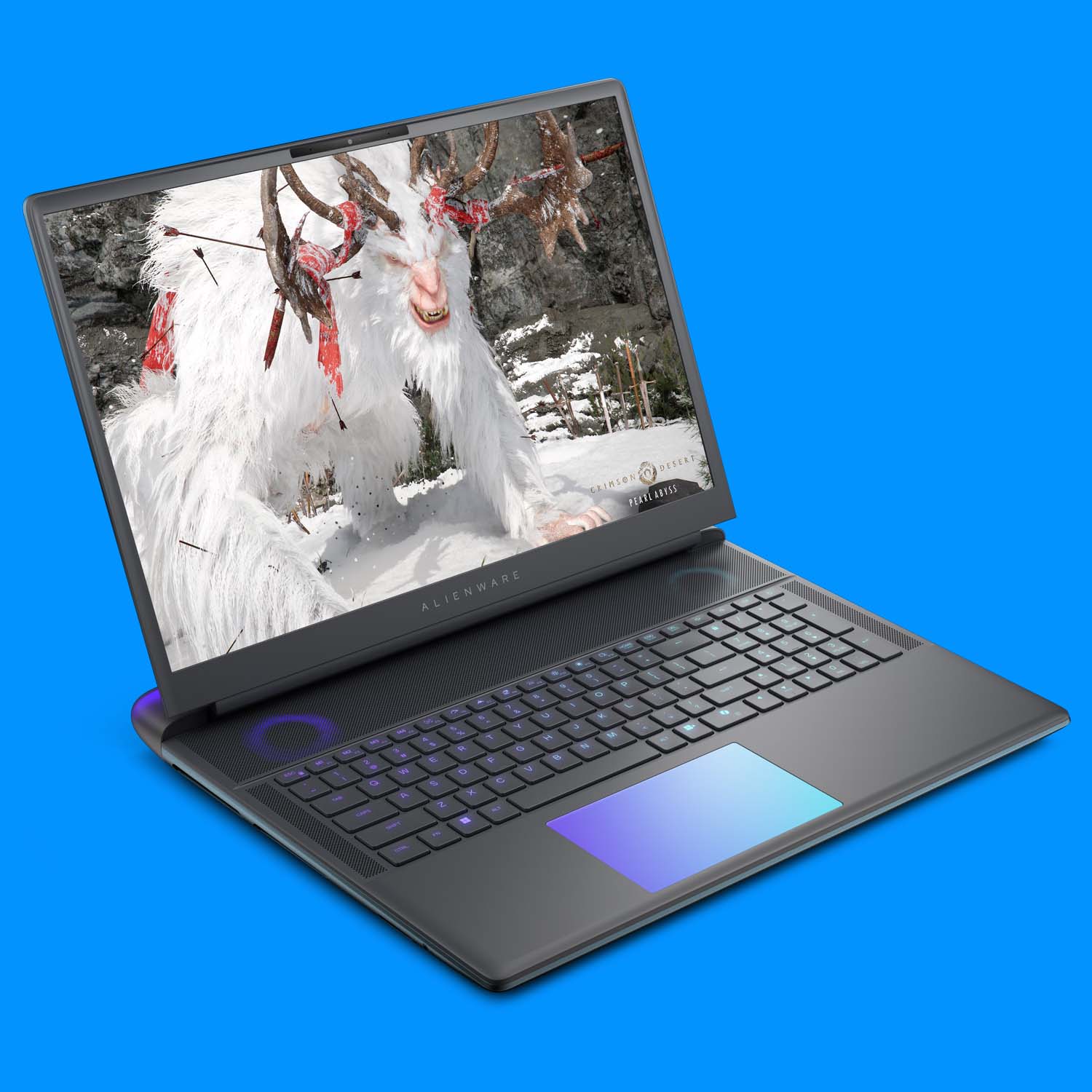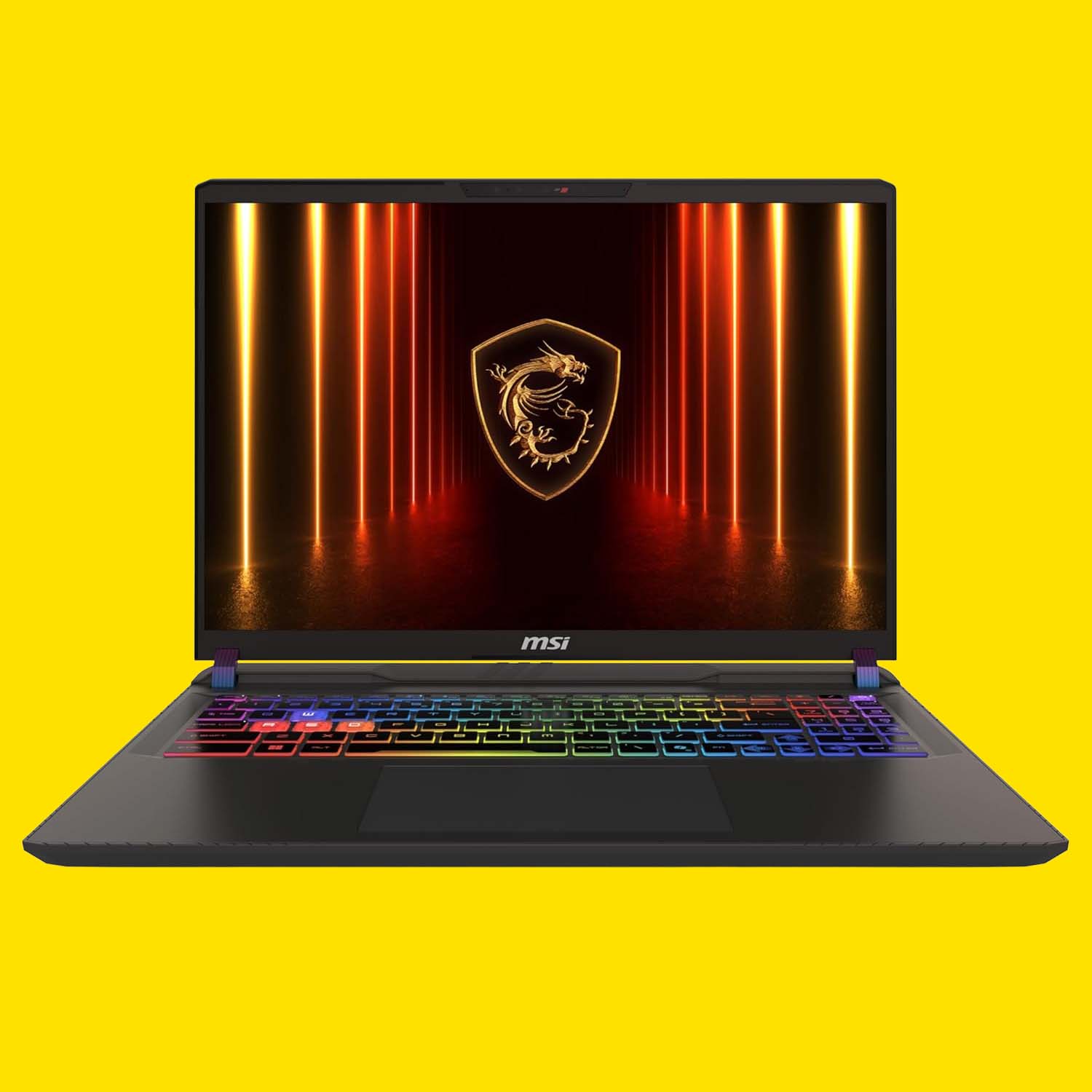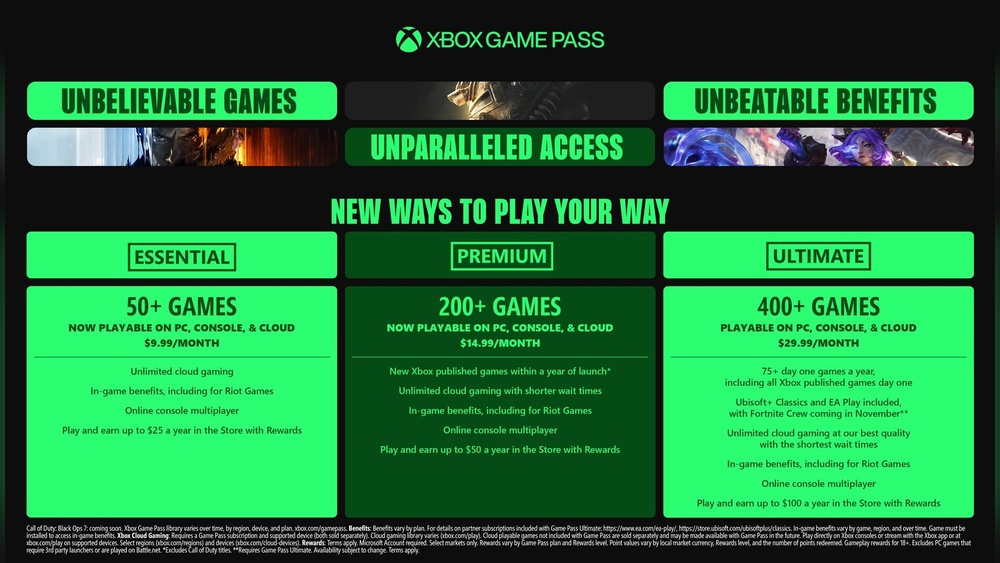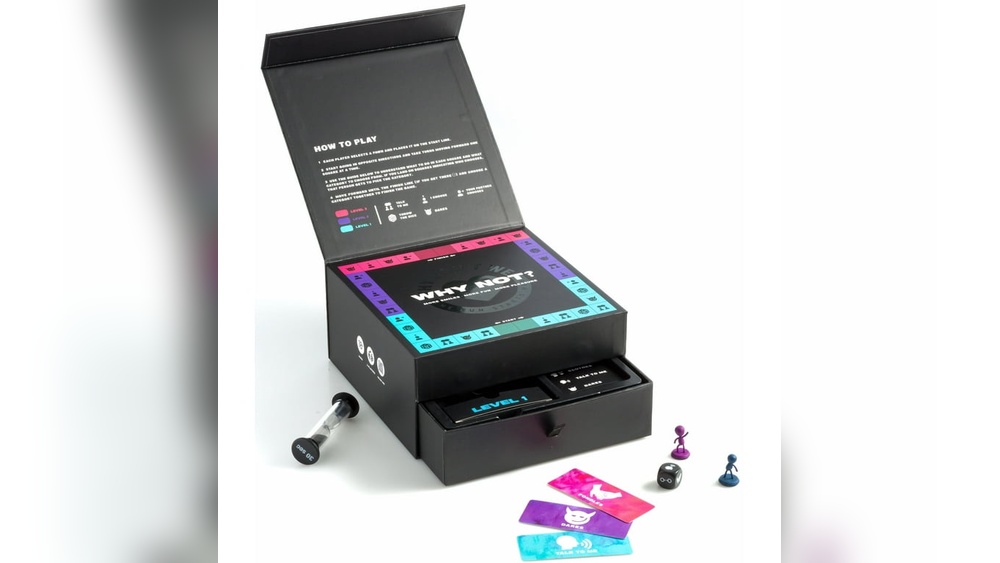Looking to buy a gaming laptop but not sure where to start? Choosing the right one can feel overwhelming with so many options and specs to consider.
You want a laptop that runs your favorite games smoothly, fits your budget, and lasts for years. This guide will help you cut through the noise and find the perfect gaming laptop that matches your needs. Keep reading, and by the end, you’ll know exactly what to look for to make a confident choice.
-Reviewer-Photo-SOURCE-Luke-Larsen.jpg)
Credit: www.wired.com
Choosing The Right Gaming Laptop
Choosing the right gaming laptop can feel tricky. Many options exist, each with different features. Picking a laptop that fits your needs matters. It should handle games well and suit your lifestyle. Understanding key points helps make the choice easier. Focus on features, balance, and budget.
Key Features To Consider
Look at the processor first. A strong CPU runs games smoothly. Next, check the graphics card. It controls how good games look. RAM also matters. More RAM means better multitasking and faster loading. Storage space affects how many games you can save. SSDs load games quicker than regular hard drives. Screen size and quality impact your gaming view. Choose a display with high refresh rates for smooth images. Battery life is important for playing on the go. A good cooling system keeps your laptop from overheating.
Performance Vs Portability
High performance laptops are often heavier. They have better parts but less battery life. Lightweight laptops are easy to carry. They may not run the latest games well. Decide if you want power or mobility. Gamers who play mostly at home may prefer strong performance. Those who travel need a light, portable option. Some laptops offer a middle ground. They balance decent power with manageable weight.
Budget Ranges
Gaming laptops come in many price ranges. Budget models cost around $700 to $1,000. They run most games but at lower settings. Mid-range laptops fall between $1,000 and $1,500. They provide better graphics and speed. High-end laptops cost over $1,500. They handle demanding games with ease and high settings. Set a budget before shopping. Stick to it to avoid overspending. Match your budget with the features you need most.
Essential Hardware Components
Choosing the right gaming laptop means knowing the key hardware parts inside. These parts decide how well your games run and how smooth your experience will be.
This section explains the essential hardware components you must consider. It covers the CPU, GPU, RAM, and storage. Each plays a big role in gaming performance.
Cpu Options
The CPU, or processor, is the brain of your laptop. It handles game logic and tasks outside graphics. Good CPUs run games without lag or delay.
Intel and AMD offer popular choices. Intel Core i5 and i7, or AMD Ryzen 5 and 7, are common for gaming. Higher numbers usually mean faster performance.
Gpu Choices
The GPU renders the game’s graphics. It makes game worlds look sharp and realistic. A strong GPU improves frame rates and visual quality.
NVIDIA GeForce and AMD Radeon are top GPU brands. Models like NVIDIA GTX or RTX series handle most games well. Choose a GPU that matches your gaming style and budget.
Ram And Storage
RAM helps your laptop run many tasks at once. Games need enough RAM to load smoothly. Aim for at least 8GB, but 16GB is better for newer titles.
Storage holds your games and files. SSDs load games faster than traditional hard drives. A combination of SSD and HDD offers speed and space.
Display And Design
The display and design of a gaming laptop play a big role in your overall experience. A good screen shows every detail clearly. The design affects how comfortable and durable the laptop feels. Both matter for playing games and using the laptop daily.
Screen Size And Resolution
Screen size changes how much you see and how easy it is to carry the laptop. A 15-inch screen fits most needs well. Bigger screens, like 17 inches, give a wider view but add weight. Smaller screens are lighter but may feel cramped.
Resolution means how sharp the picture looks. Full HD (1920×1080) is common and works fine for most games. Higher resolutions, like 4K, look clearer but need more power. Choose the resolution that matches your gaming and work needs.
Refresh Rate Importance
The refresh rate shows how many times the screen updates per second. Higher rates make motion smoother. Most gaming laptops have 60Hz, 120Hz, or 144Hz screens. A 144Hz screen feels more fluid in fast games. It reduces blur and gives a better gaming feel.
Pick a refresh rate that fits your game style and budget. Higher refresh rates need stronger hardware but improve gameplay quality.
Build Quality And Aesthetics
A strong build protects your laptop and lasts longer. Metal bodies are more durable than plastic ones. Look for solid hinges and good keyboard design. A comfortable keyboard helps during long gaming sessions.
Design also shows your style. Some laptops have simple looks, others have colorful lights and sharp edges. Choose a design that you like and feel proud to use.
Battery Life And Cooling
Battery life and cooling are two key factors for any gaming laptop. They affect how long you can play and how well your laptop runs. Good battery life means more gaming without searching for a power outlet. Efficient cooling keeps your laptop safe and quiet during intense gaming sessions.
Battery Expectations For Gaming
Gaming laptops usually have shorter battery life than regular laptops. High-performance parts use more power. Expect around 2 to 4 hours of gaming on battery. Simple tasks like browsing may last longer. Some laptops offer fast charging to reduce downtime. Plan to play plugged in for longer sessions.
Cooling Systems And Noise Levels
Gaming laptops need strong cooling systems to prevent overheating. Look for laptops with multiple fans or heat pipes. Cooling helps keep performance steady and avoids damage. Fans can be noisy, especially under heavy use. Some laptops use quiet cooling technology to reduce noise. Good airflow also means the laptop stays comfortable to touch.
Brand And Support
Choosing a gaming laptop brand is more than just picking a name. It affects the quality, performance, and support you get. A strong brand often means better parts and reliable service. Support matters a lot if your laptop has issues or needs repairs. Good service saves time and stress. This section covers top brands and what to expect from their support.
Top Gaming Laptop Brands
Several brands stand out for gaming laptops. ASUS and MSI offer high performance and good build quality. Dell’s Alienware series is popular for premium gaming features. Lenovo’s Legion line balances power and price well. HP Omen laptops combine style with solid specs. These brands have a strong reputation in the gaming world. Choosing from them helps ensure a good experience.
Warranty And Customer Service
Warranty protects your purchase from defects or faults. Look for at least one year of coverage. Some brands offer extended warranties or accidental damage protection. Customer service response time varies across brands. Fast and helpful support saves you from long downtime. Check if the brand has local service centers near you. Good support makes repairs and troubleshooting easier.
Popular Models To Consider
Choosing a gaming laptop can feel tough with so many options. Popular models often fit different needs and budgets. Some laptops offer top performance, while others balance power and price. There are also good choices for those on a tight budget. Below are popular gaming laptops in three categories. This will help you find the right match.
High-end Options
High-end gaming laptops have the best specs. They run new games smoothly at high settings. Models like the Alienware x17 and ASUS ROG Zephyrus offer fast processors and strong graphics cards. These laptops often have large screens and advanced cooling systems. They suit gamers who want great visuals and speed.
Mid-range Picks
Mid-range laptops balance power and cost. They handle most games well without breaking the bank. Popular models include the Acer Predator Helios 300 and Lenovo Legion 5. These laptops have good graphics and enough memory for smooth gameplay. They work well for casual and serious gamers alike.
Budget-friendly Choices
Budget gaming laptops are affordable and decent for basic gaming. Models like the HP Pavilion Gaming and ASUS TUF Gaming offer entry-level graphics and processors. They can play many games but at lower settings. These laptops are great for beginners or those on a tight budget.
Tips For Buying And Maintenance
Choosing the right gaming laptop is just the start. Proper care helps keep it fast and reliable. Simple tips for buying and maintenance save money and time. Follow these ideas to get the best laptop experience.
Where To Buy
Buy from stores with good reviews and return policies. Check official brand websites for the latest models and deals. Avoid unknown sellers to reduce risk of fake products. Look for warranty options to protect your purchase. Compare prices across multiple sellers before deciding.
Upgrading And Longevity
Choose laptops that allow upgrades like extra RAM or SSD. Upgrading parts can boost speed without buying a new laptop. Clean the laptop’s vents often to stop overheating. Use cooling pads to keep temperatures low during gaming. Regular software updates improve performance and security.
Protecting Your Investment
Use a sturdy laptop bag for safe transport. Avoid eating or drinking near your laptop to prevent damage. Back up important files often to avoid data loss. Use antivirus software to protect against malware. Handle your laptop gently to avoid physical damage.

Credit: www.pcgamer.com

Credit: www.pcgamer.com
Frequently Asked Questions
What Specs Matter Most In A Gaming Laptop?
The CPU, GPU, RAM, and storage significantly impact gaming performance. A strong GPU and at least 16GB RAM ensure smooth gameplay. Fast SSD storage reduces load times. A high-refresh-rate display also enhances visual experience during gaming sessions.
How Much Should I Spend On A Gaming Laptop?
Budget depends on your gaming needs. Entry-level laptops cost around $800, suitable for casual gamers. Mid-range models ($1,200–$1,500) offer better performance. High-end laptops ($2,000+) provide top-tier graphics and speed for serious gamers and streamers.
Is Portability Important For Gaming Laptops?
Portability matters if you travel or game on the go. Lightweight models with good battery life suit frequent movers. However, portable laptops may sacrifice some power and cooling compared to larger, heavier gaming laptops.
Should I Prioritize Gpu Or Cpu For Gaming Laptops?
GPU is more critical as it handles graphics rendering. A powerful GPU ensures higher frame rates and better visuals. However, a decent CPU supports smooth game mechanics and multitasking. Balance both components based on your gaming preferences.
Conclusion
Choosing the right gaming laptop depends on your budget and needs. Focus on good graphics, fast processors, and enough memory. Don’t forget battery life and screen quality. Think about the games you want to play. Pick a laptop that feels comfortable and fits your style.
Take your time to compare models and read reviews. A smart choice gives you fun and smooth gaming for years. Your perfect gaming laptop is out there—find it and enjoy every game.









